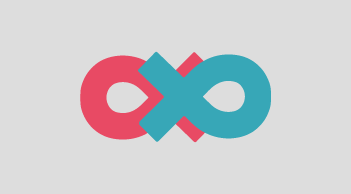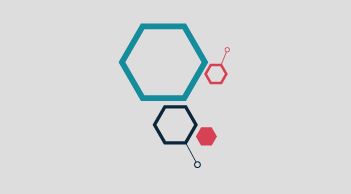The Cancer Genomics lab –which I have the honor of leading– was born 12 years ago with the goal of offering tools based on state-of-the-art technology to improve the molecular knowledge of tumors in oncology patients. In fact, in 2006 a new technology entered the market, one that was called to transform molecular diagnosis: Next Generation Sequencing (or NGS). Through this technology, the time needed to sequence the human genome (which contains 3 billion base pairs) went from 10 years to a matter of days. Therefore, genomes could start being sequenced on a regular basis.
All functions that govern cell functions and determine their behavior in our organism are coded in our DNA or genome. Cancer is, as a matter of fact, a disease that uses the genome to emerge and evolve. The key is that any NDA mutation that is fixed is then passed on to daughter cells that are born with altered functions. Multiple mutations occur successively, until there are so many unregulated elements, that cells no longer obey any of the necessary rules of cohabitation needed in an organism. At that moment, they are constituted and continue their evolution as malignant tumors. The genome in all tumors has alterations or mutations, which in turn give them the advantage of unlimited and uncontrolled growth. Because of this, when the NGS was born, scientists and visionary doctors became aware of just how much this tool would help us to understand cancer.
Dr. Baselga, then head of Oncology at the Hospital Vall d’Hebron in Barcelona, was certain that tumoral genome-based biomarkers obtained through NGS would be decisive to apply the model of precision medicine. With my lab, and always alongside the Molecular Pathology lab, the DIAMAV Program was born: an advanced molecular diagnosis program with the mission to dive into the molecular aspects of each participant’s disease. In these years, our journey has consisted of developing analysis tests, based on NGS, to determine first hundreds, then thousands and then millions (currently) of alterations in the DNA of tumoral cells. All with the goal of offering patients the best therapeutic option among the arsenal of drugs available at the Hospital Vall d’Hebron in Barcelona. We must highlight that our hospital is very active in the field of phase I clinical trials, a phase in which drugs are tried for the first time on humans, leading to new treatment options for patients. Upon this variety in innovative drugs, having a high level of molecular information gives oncologists a degree of precision when choosing a treatment for their patient.
Nowadays, the DIAMAV program –led by Fundación FERO– is one of the strategic lines of the Vall d’Hebron Institute of Oncology (VHIO). Current analysis tests allow us to identify more than 2.5 million genome positions to see if there are mutations and, thus, deep-dive in the knowledge of each tumor and design new therapies that patients can benefit from. In recent years we have incorporated liquid biopsies to DIAMAV, something that no doubt deserves its own chapter. This allows us to study tumoral alterations through simple blood samples, without the need of carrying out biopsy procedures, which are invasive and risk-inducive for the patient.
Thanks to the technology in the DIAMAV program, every year we are able to analyze more than 2,500 samples belonging to more than 1,200 patients, 12% of which can access new therapeutic options against cancer –mostly phase I clinical trials– that, otherwise, they would not have had. Undoubtedly, the development of programs like this one, which see no limit in their ambition to improve molecular diagnosis, will be a wealth that will improve not only the present of our patients, but also the future of all of us.
Dra. Ana Vivancos Jefa del grupo de Genómica del Cáncer en el Vall d’Hebron Instituto de Oncología (VHIO) de Barcelona y directora del Programa de Diagnóstico Molecular Avanzado (DIAMAV) financiado por Fundación FERO.





